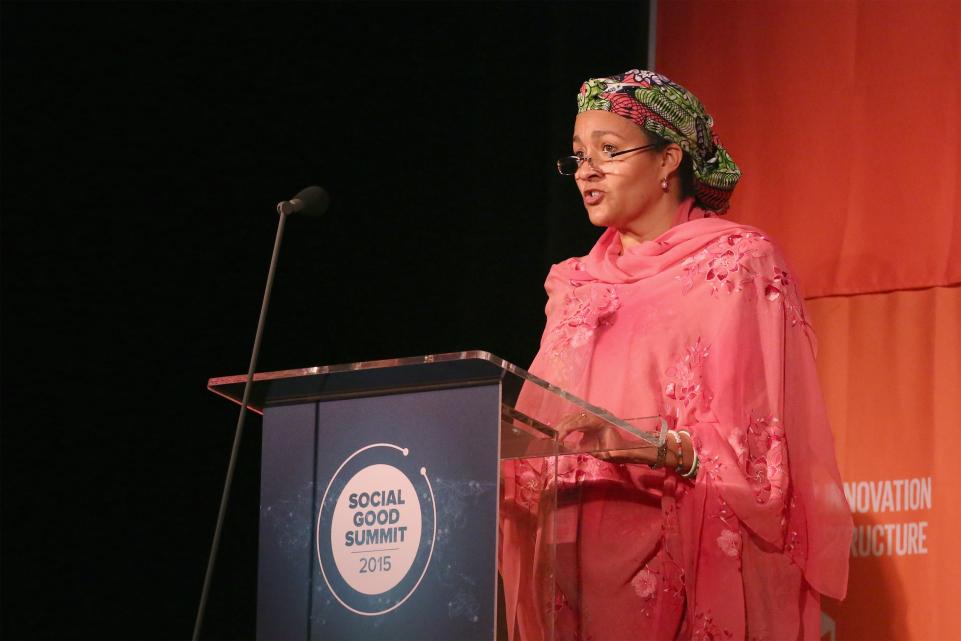
The incoming U.N. Secretary-General, António Guterres, has designated Nigerian environment minister Amina Mohammed as his right-hand woman.
The 54-year-old, who is of mixed British-Nigerian heritage, brings a wealth of development experience to the role. Mohammed has worked alongside outgoing U.N. chief Ban Ki-moon in pushing the international community to wipe out poverty and tackle climate change, while also serving three Nigerian administrations in the development field.
Mohammed said she was “humbled” to have been selected by Guterres. “An amazing journey awaits us serving [member states] to deliver on the ambitions set in 2015 by the U.N.,” Mohammed tweeted on Thursday.
Her current boss, Nigerian President Muhammadu Buhari, also congratulated his minister on her appointment:
A statement from Buhari’s spokesman Garba Shehu said that Mohammed would transition to her new role in March 2017.
Mohammed, née Amina Az-Zubair, has worked in development over the course of several decades. Between 2000 and 2014, she worked with three Nigerian presidents—Olusegun Obasanjo, Umaru Musa Yar’Adua, and Goodluck Jonathan —as an adviser on implementing the Millennium Development Goals (MDGs), a series of targets for member states which included eradicating extreme poverty, increasing access to education and improving gender equality.
The member states had a target of achieving the MDGs by 2015 and Nigeria had mixed results. While it only met two of the eight goals, it made significant progress in certain areas—poverty fell from 65.6 percent in 1996 to around 33.1 percent in 2012/13. But in other areas, the country struggled: the percentage of children enrolled in primary school actually declined from 1995 to 2013, in large part due to the Boko Haram insurgency, which forced more than a million children out of school in Nigeria and neighboring countries.
Post-2015, Mohammed served as an adviser to Ban in orchestrating the Sustainable Development Goals, which replaced the MDGs with a deadline of 2030. According to Fortune magazine, Mohammed helped to “bridge the divide” between developing and developed nations on the goals, with all member states eventually agreeing to the SDGs, which focus on tackling climate change.
Buhari appointed Mohammed to his cabinet in November 2015, where she has faced the challenge of pushing Nigeria, a country heavily dependent on the oil and gas industry for its national revenue, to consider other—sustainable—energy sources. Mohammed oversaw Nigeria’s signing of the Paris Agreement on Climate Change in September, in which Nigeria committed to significantly reducing its greenhouse gas emissions. Her tenure in the cabinet has also seen the government launch a $1 billion cleanup operation in Ogoniland, an area of the Niger Delta that has suffered multiple oil spills in recent years.
♦ Culled from the Newsweek

Leave a Reply